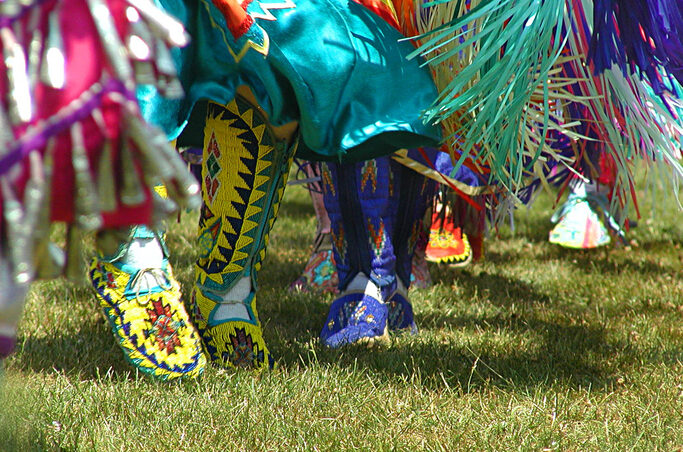Law360 (November 15, 2018, 2:52 PM EST) New Jersey will affirm its prior recognition of the Nanticoke LenniLenape Tribal Nation as a staterecognized tribe under a $2.4 million settlement over claims that state officials wrongfully repudiated that status and thus caused the tribe to lose federal benefits, the parties announced Thursday.
In a deal resolving the tribe’s federal and state lawsuits against the state attorney general, New Jersey acknowledged that it has officially recognized the 3,000member tribe as an American Indian tribe since 1982 and agreed to formally notify state and federal agencies of the tribe’s official recognition status, the parties said.
The $2.4 million payment from the state will allow the tribe to rebuild its cultural and economic development programs, the tribe said.
“This fight to restore recognition has been lengthy, costly and sad,” Tribal Principal Chief Mark Gould said Thursday in a statement. “But today New Jersey has reaffirmed that American Indians are not only part of its storied past, but valued partners in a shared future. We are ready to do our part to rebuild our relationship with the state government.”
State Attorney General Gurbir S. Grewal — who started in his position in January soon after Democratic Gov. Phil Murphy took office — said Thursday in a statement, “Tribal rights are important rights, and through this settlement we’ve been able to affirm the status of the Nanticoke LenniLenape Nation as an American Indian tribe formally recognized by the state.”
“As a result of this settlement, there is no more ambiguity regarding the tribe’s official status, and the tribe’s forward progress cannot be impeded by any staterelated recognition issues,” Grewal said. “I’m heartened that, through good faith negotiation, we’ve been able to resolve this matter fairly and bring an end to years of legal dispute.”
The settlement — which officials said includes no admission of liability or wrongdoing on the state’s part — ends a longrunning legal battle that began under the administration of Republican Gov. Chris Christie.
The tribe asserted that New Jersey had recognized it as an American Indian tribe in at least five ways accepted by federal agencies: a legislative resolution adopted in 1982, state statutes enacted in 1992 and 1995, an executive order signed in 2008, and decades of treatment by state agencies. That recognition enabled the tribe to obtain federal benefits.
In 2012, however, the U.S. Government Accountability Office issued a report that said it was New Jersey’s official position that there are no staterecognized tribes in the state.
The tribe said it ultimately discovered from the federal government that a Christie administration employee assigned to the state Commission on American Indian Affairs had informed the GAO that New Jersey has no staterecognized tribes. The tribe filed its lawsuits in 2015.
As a result of New Jersey’s reversal of its recognition status, the tribe had alleged it lost access to federal grants and scholarships, contracts previously won by tribally owned businesses and the ability to market and sell products as “Indianmade” under the Indian Arts and Crafts Act.
In an April brief supporting its summary judgment motion in the federal suit, the tribe said, “Federal benefits and opportunities of which the tribe had availed itself for decades vanished. The tribe’s businesses collapsed. The tribe had no choice but to terminate its employees. The tribe closed its offices. The tribe’s seniors, disabled persons, children and students lost critical assistance on which they relied in their daily lives.”
“The attorney general, purported lawyer for the people of New Jersey, had become the primary persecutor of its original and most vulnerable residents,” the brief said. That summary judgment motion was still pending before the parties reached the settlement.
The tribe had argued that the state’s disavowal of its tribal status was based on the racial stereotype that all Native American tribes want to operate casinos and the unfounded belief that the tribe would attempt to leverage state recognition to acquire federal casino gambling rights. The tribe said it prohibits gambling as a source of its income.
According to Thursday’s statement from the attorney general’s office, both parties agree that the state recognition acknowledged under the settlement does not provide the tribe with federal casino gambling rights. The statement said the tribe “specifically ‘disclaims any interest in casino gaming rights.’”
The state agreed under the deal that “its formal recognition is intended to help ‘qualify the tribe for all federal and state benefits … for which staterecognized tribes are eligible,’” the statement said.
The federal agencies that New Jersey will formally notify of the tribe’s recognition status include the Indian Arts and Crafts Board, the U.S. Department of Health and Human Services, the U.S. Small Business Association and the U.S. Department of Housing and Urban Development, the statement said.
Greg Werkheiser of Cultural Heritage Partners PLLC, one of the attorneys representing the tribe, said Thursday in a statement, “If the character of a nation is measured by how its treats its most vulnerable people, then today we have reason to celebrate this restoration of justice, but we all must do much better by our Native brothers and sisters.”
The tribe is represented by Greg Werkheiser and Eden Burgess of Cultural Heritage Partners PLLC, and Frank Corrado of Barry Corrado Grassi. The state is represented by Stuart M. Feinblatt of the state attorney general’s office.

